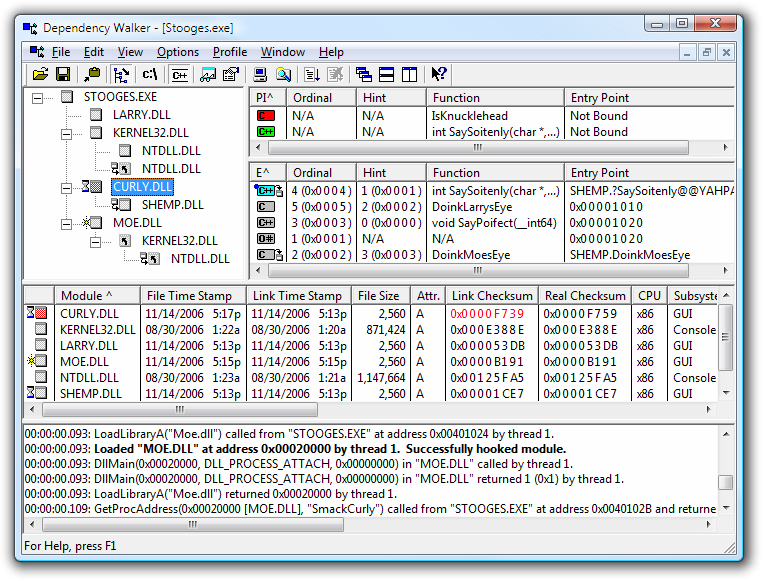When using NUnit console 2.4.x and 3.x with .csproj files, it expects a valid and fairly complete MSBuild/xbuild project to determine the assembly name, dir location, and namespace that it will test in the Library-based project (Exe-based projects are possible if you have defined the proper entry point). In this example I used NUnit 2.4.x and 3.x console as there are execution differences but the same .csproj is being used so if you are using MonoDevelop/Xamarin Studio the IDE’s built-in NUnit 2.4.x test pad will also work.
NUnit 3.0 console (Install via nuget):
mono $(MTOOLS)/nunit3-console.exe nunit-lib/nunit-lib.csproj --config=Debug
NUnit Console Runner 3.0.5797
Copyright (C) 2015 Charlie Poole
Runtime Environment
OS Version: MacOSX 15.0.0.0
CLR Version: 4.0.30319.17020
Test Files
nunit-lib/nunit-lib.csproj
Errors and Failures
1) Failed : nunitlib.Test.TestCase
Expected string length 8 but was 5. Strings differ at index 0.
Expected: "Overflow"
But was: "Stack"
-----------^
at nunitlib.Test.TestCase () in <filename unknown>:line 0
Test Run Summary
Overall result: Failed
Tests run: 1, Passed: 0, Errors: 0, Failures: 1, Inconclusive: 0
Not run: 0, Invalid: 0, Ignored: 0, Explicit: 0, Skipped: 0
Start time: 2015-11-20 12:36:28Z
End time: 2015-11-20 12:36:28Z
Duration: 0.132 seconds
NUnit 2.4.8 (installed via Mono):
NOTE: NUnit console 2.4.x is broken due a hard-coded Windows-style Directory Separator when parsing .csproj files and creating the expected CIL/assembly location, use MONO_IOMAP to work around it. This is not a issue in 3.0.
NUnit Console 2.4.x w/o MONO_IOMAP:
nunit-console nunit-lib/nunit-lib.csproj -config=Debug
~~~~
Unhandled Exception:
System.IO.DirectoryNotFoundException: Directory "/Users/sushi/code/XamTests/nunit-lib/nunit-lib/bin\Debug" not found.
~~~~
NUnit Console 2.4.x with MONO_IOMAP:
MONO_IOMAP=all nunit-console nunit-lib/nunit-lib.csproj -config=Debug
NUnit version 2.4.8
Copyright (C) 2002-2007 Charlie Poole.
Copyright (C) 2002-2004 James W. Newkirk, Michael C. Two, Alexei A. Vorontsov.
Copyright (C) 2000-2002 Philip Craig.
All Rights Reserved.
Runtime Environment -
OS Version: Unix 15.0.0.0
CLR Version: 4.0.30319.17020 ( 4.2.1 (explicit/8862921 Thu Oct 29 17:09:16 EDT 2015) )
.F
Tests run: 1, Failures: 1, Not run: 0, Time: 0.115 seconds
Test Case Failures:
1) nunitlib.Test.TestCase : Expected string length 8 but was 5. Strings differ at index 0.
Expected: "Overflow"
But was: "Stack"
-----------^
.csproj example used in for example:
<?xml version="1.0" encoding="utf-8"?>
<Project DefaultTargets="Build" ToolsVersion="4.0" xmlns="http://schemas.microsoft.com/developer/msbuild/2003">
<PropertyGroup>
<Configuration Condition=" '$(Configuration)' == '' ">Debug</Configuration>
<Platform Condition=" '$(Platform)' == '' ">AnyCPU</Platform>
<ProjectGuid>{944946CD-39B2-4A16-A8A8-9F70F0450506}</ProjectGuid>
<OutputType>Library</OutputType>
<RootNamespace>nunitlib</RootNamespace>
<AssemblyName>nunit-lib</AssemblyName>
<TargetFrameworkVersion>v4.5</TargetFrameworkVersion>
</PropertyGroup>
<PropertyGroup Condition=" '$(Configuration)|$(Platform)' == 'Debug|AnyCPU' ">
<DebugSymbols>true</DebugSymbols>
<DebugType>full</DebugType>
<Optimize>false</Optimize>
<OutputPath>bin\Debug</OutputPath>
<DefineConstants>DEBUG;</DefineConstants>
<ErrorReport>prompt</ErrorReport>
<WarningLevel>4</WarningLevel>
<ConsolePause>false</ConsolePause>
</PropertyGroup>
<PropertyGroup Condition=" '$(Configuration)|$(Platform)' == 'Release|AnyCPU' ">
<DebugType>full</DebugType>
<Optimize>true</Optimize>
<OutputPath>bin\Release</OutputPath>
<ErrorReport>prompt</ErrorReport>
<WarningLevel>4</WarningLevel>
<ConsolePause>false</ConsolePause>
</PropertyGroup>
<ItemGroup>
<Reference Include="System" />
<Reference Include="nunit.framework">
<HintPath>..\packages\NUnit.2.6.4\lib\nunit.framework.dll</HintPath>
</Reference>
</ItemGroup>
<ItemGroup>
<Compile Include="Test.cs" />
</ItemGroup>
<Import Project="$(MSBuildBinPath)\Microsoft.CSharp.targets" />
<ItemGroup>
<None Include="packages.config" />
</ItemGroup>
</Project>
Ref: This was my answer on StackOverflow


